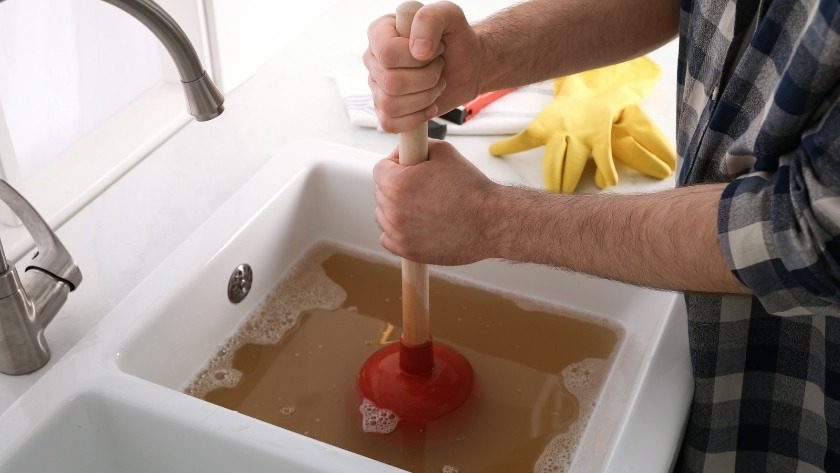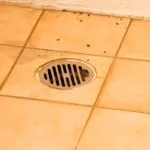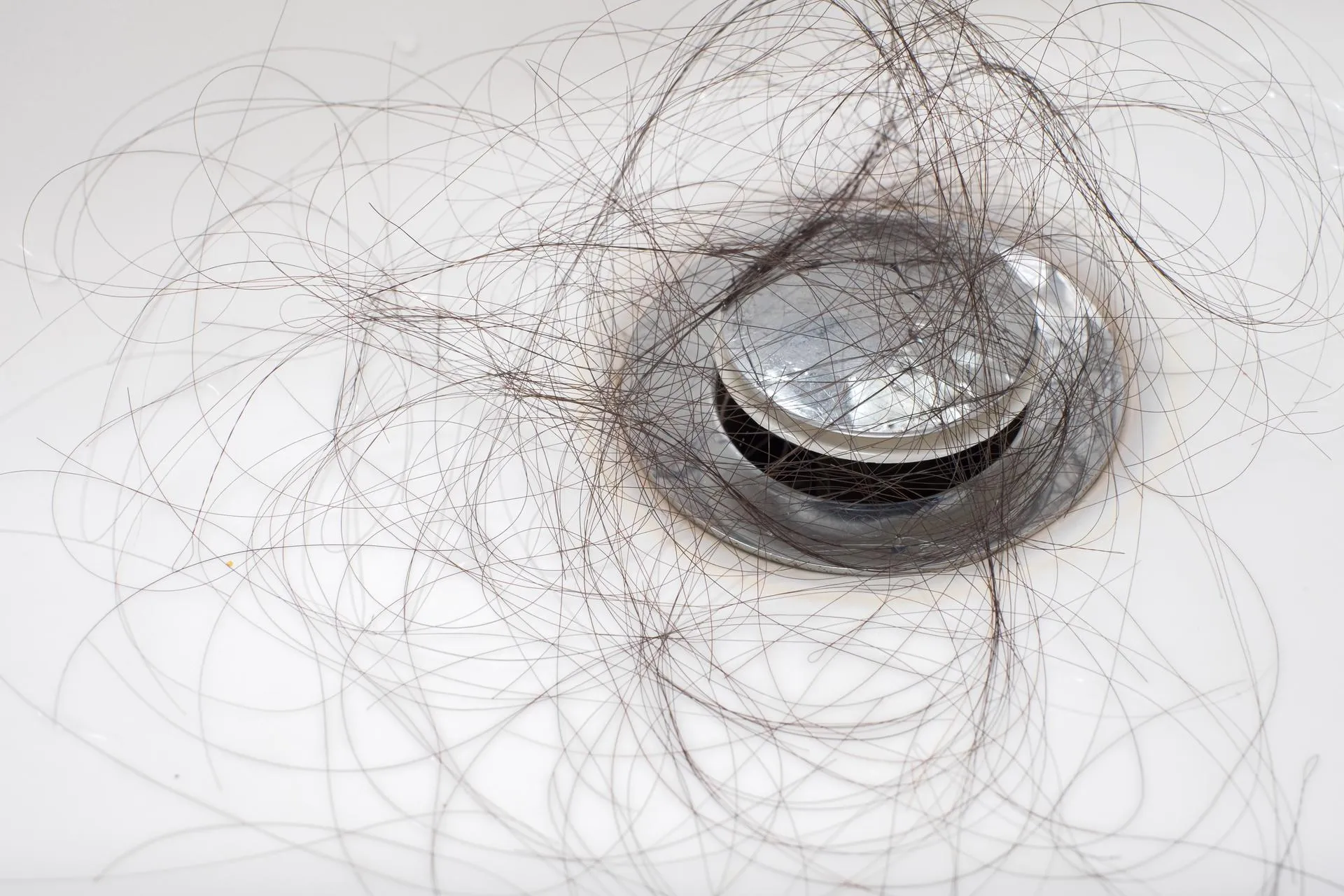In today’s Metro-Flow Plumbing blog entry we are going to discuss ways to prevent clogging your home’s sewer line! The plumbing in your home is an essential part of everyday life that we often take for granted in our busy lives. However, it’s easy to forget about your sewer line until it fails, becomes clogged and begins to cause problems. If you’re looking for ways to prevent clogging of your sewer line, read on for some tips!
1.Install a Sewer Line Root Barrier
The first step to preventing clogs is to install a root barrier in your main sewer line. A root barrier is essentially a pipe that goes down into the main pipe, and then curves up and attaches to either side of the lateral sewer line (which connects and branches off from your main sewer pipe). The barrier is made of flexible material that roots can’t grow through so it will keep them from entering and damaging your pipes. This can be installed at any time during construction or renovation of your home—just make sure you’ve got plenty of space before you start digging!
Also remember to review our article on 5 Ways Sewer Gas Can Make You Sick.
2.Use Drain Screens in Drains
There’s no need to be afraid of clogs, as long as you’re prepared for them. Drain screens are easy to install and can prevent a lot of problems in your pipes. Drain screens work by catching small objects that may get flushed down the toilet or sink, preventing them from going down your pipes. These items can eventually clog up your drain lines, causing plenty of damage and headaches if they aren’t removed quickly. A simple trip to the local hardware store will provide you with many options for different types of drain screens—you can even purchase one that fits right over the end of a pipe. This kind makes it easy to place over almost any drain opening without having to modify anything at all.
3.Don’t Flush Clumping Cat Litter
Another thing that you should be careful about when it comes to clogging your sewer line is clumping cat litter. While it might seem like a good idea to use this type of litter, it can actually cause serious problems in your home. Clumping cat litter contains a lot of clay and other materials that are difficult for the wastewater treatment plant to process. This will result in large chunks of solid material being trapped inside your pipes, especially if you have a small home where the plumbing system isn’t so spread out.
4.Keep Garbage Disposal Blades Sharp
It’s important to keep your garbage disposal blades sharp. A dull blade will not efficiently grind up food particles and cause clogs in your sewer line. To sharpen the blades, you can use a sharpening tool, such as an angle grinder or bench grinder. Alternatively, you could use a coarse grinding wheel or grinding stone to remove the metal layer on the blade. Please do not attempt to do this on your own. It’s always best to call a professional to avoid an unfortunate accident.
Additionally, we recommend you read What not to Put in the Garbage Disposal.
5.Check/Repair Pipe Connections, Venting, and Seals
When you check your pipes and venting, you’ll want to look for any leaks in the pipe connections, sealant around the joints and look out for any cracks along the pipe. You can often use a plumber’s snake to clear out the clog, but if this doesn’t work or if you don’t have one on hand, try pouring hot water down your drain pipe. The heat from the water can loosen up even stubborn clogs and more often than not does the job! Feel free to call us for a professional inspection of your plumbing system. We’ll send one of our certified and insured plumbing technicians to come take a look and answer any question you may have!
6.Never Pour Grease or Cooking Oil Down the Drain
Never pour cooking oil down the drain. Not only is cooking oil not the best for you, but it’s also not good for the environment. Cooking oils like corn or vegetable oils will clog up your pipes and create an expensive plumbing bill. Instead, throw out your leftover cooking oil in a sealed container that you can fill up over time and have the option to recycle. The same thing should be said about grease. You should never pour grease down your drain for similar reasons. Grease has a long shelf life, which means it can build up in your pipes and cause a blockage. If you have any concerns about whether something should or shouldn’t go down the drain, check out the blog we wrote on just this particular subject HERE for more information on how to properly dispose of household waste items that may be clogging your drains or causing sewer line backups!
7.Avoid Flushing Feminine Products Down the Drain
It’s important to note that you can’t flush tampons, pads, or any other feminine hygiene products down the drain. This is because the material they are made of doesn’t break down in water and will clog your sewer line. If these products do get flushed down the toilet, they can become stuck which can cause serious clogs that may require an expensive fix to get rid of. To avoid this problem altogether, always place these items into a trash bag when disposing of them.
While we are on the subject, it might be interesting for you to read How to Prevent Drain Clogs.
8.Don’t Flush Anything Other Than Toilet Paper Down the Toilet
Never flush anything other than toilet paper down the toilet. If you do, there is a high chance the item will clog your pipes and possibly cause major damage to your home. While it’s tempting to try and put everything else down there—including used tissues and paper towels—it’s better for everyone if you just don’t go there at all. Keep it in the trash can.
9.Avoid Putting Food Scraps Down the Kitchen Sink
Avoid putting food scraps down the kitchen sink. Food is usually the cause of most clogs in the kitchen sink because it attracts mold and mildew, which can eventually build up in your drain pipes. Be aware of what you’re putting down there after you’re done cooking.
10.Don’t Treat Your Drains Like Trash Cans
Don’t treat your drains like trash cans. This is a big one. You shouldn’t put anything down your drain that isn’t supposed to go there, especially if it’s not certain garbage disposal safe food or water. For example, things like coffee grounds, grease and oils don’t break down in the sewer system and will eventually clog it up. You should also be careful what you pour down the kitchen sink drain when cleaning dirty pots and pans. If you think your sewer line is clogged, call a plumber. While it’s possible to unclog your own drain, the risk of making things worse or causing damage to your pipes makes it a job best left for the professionals.
One thing that should go without saying is that many of these issues can be addressed and resolved with a simple service call to Metro-Flow Plumbing. We offer plumbing inspections to check your home from top to bottom so we can identify any problems as well as take the proper steps on how to fix them. We pride ourselves in our customer care and attention and will walk you through any and all problems with your plumbing system in order to put your mind at ease.
Problems come in all shapes and sizes. Sometimes these are easy fixes like removing hairballs from drains with a plunger—other times they’re more complex repairs like replacing worn-out pipes or installing new valves on faucets around the house (which allows better flow through those fixtures). Overall, what you should take away from this blog is that in order to keep your sewer line clear, treat it with care and not as a trash anything you wish system. Furthermore, have it inspected by a certified and insured plumbing in Dallas by calling us here at Metro-Flow Plumbing 214-328-7371. Inspecting your plumbing is an easy way to find problems and prevent them from becoming bigger issues down the road.
Thank you once again for checking out our blog! We will be here next month with more plumbing know-how and plenty of holiday cheer. Until next time, Dallas!












